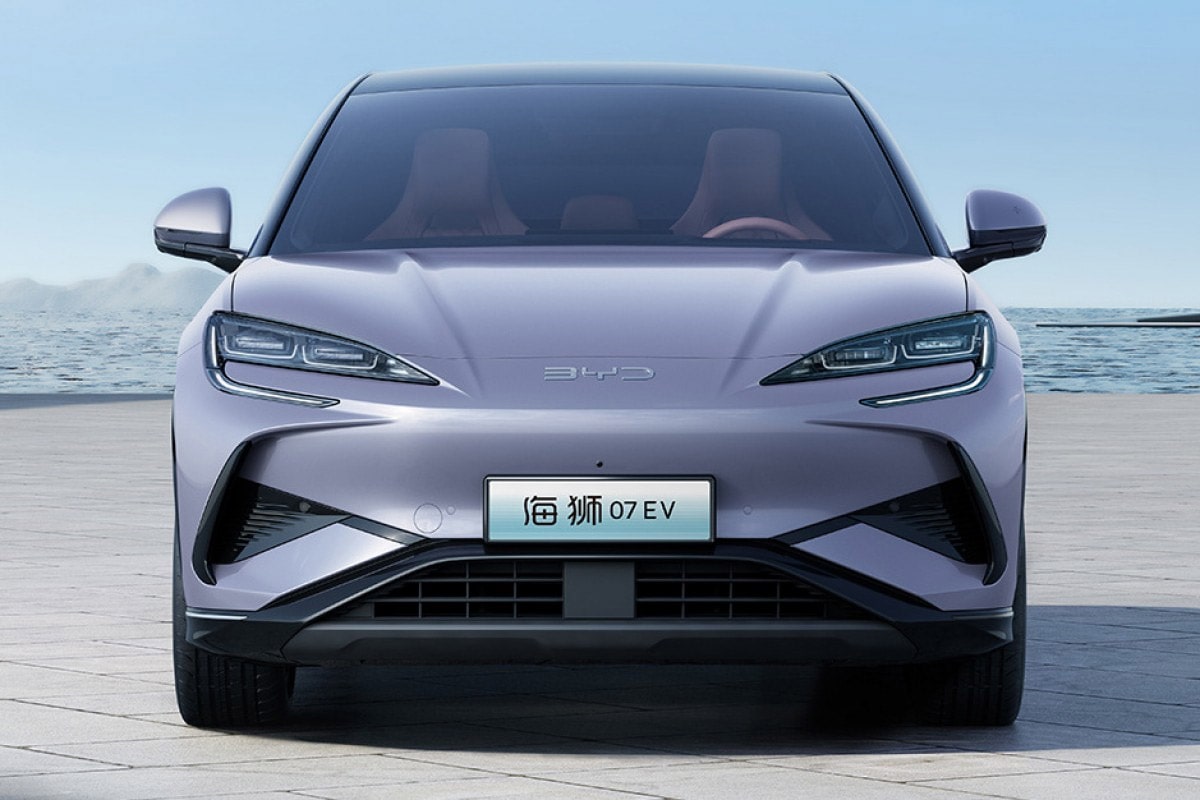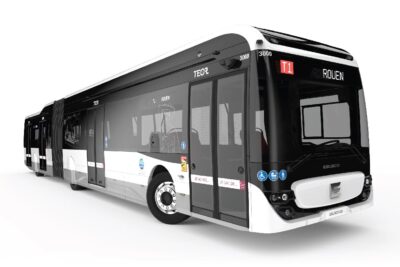China’s EV sales share reaches 40% in May
The only time China’s manufacturers sold more than one million EVs per month was in November and December 2023. After a slow start to the year, the country is now approaching that mark again. The 955,000 new energy vehicles (NEVs, including pure EVs, fuel-cell electric vehicles and plug-in hybrids) registered in May represent an increase of 105,000 units compared to April 2024 and 238,000 compared to the same month last year. That is an increase of 12 and 33 per cent, respectively. According to data from the China Association of Automobile Manufacturers (CAAM), around 583,000 of all new NEVs in May were battery electric vehicles (BEVs), and 371,000 were plug-in hybrids (PHEVs). For BEVs, this corresponds to an increase of 12.5 per cent year-on-year and 12 per cent compared to April. Sales of PHEVs climbed by 88 per cent (compared to May 2023) and 12.1 per cent (compared to April 2024).
Across all drive types, 2.42 million new vehicles hit the roads in China in May. Compared to May 2023 and the previous month, sales thus remained almost unchanged (1.5% and 2.5%, respectively). Therefore, the double-digit growth in NEVs outlined above shows that China’s market for cars with plugs continues to grow disproportionately. The NEV share in May reached a record 39.5 per cent. In other words, never before have so many cars with plugs hit the road compared to combustion vehicles. The 39.5 per cent is well above the previous year’s average, when almost one in three cars sold in China (31.6 per cent) was an NEV.
Tariffs still to come
Special tariffs announced by the US and Europe have not yet affected the May statistics. However, as exports are also included in the statistics for Chinese manufacturers, the first effects will likely soon become apparent. The provisional special tariffs will come into force in Europe in July and the US in August.
In the manufacturer ranking, BYD is once again the lonely leader in May, with its second-best monthly result, reflected in 331,817 NEVs sold (+38% YoY). That means BYD alone accounts for a good third of total NEV sales in China. Only in December 2023 had BYD ever sold more EVs and plug-in hybrids.
Specifically, the manufacturer sold 146,395 BEVs and 184,093 PHEVs in the passenger car sector in May, and several NEV commercial vehicle sales, which are less important for the statistics. The dynamics of plug-in hybrids are particularly striking. While BYD recorded a 22 per cent increase in BEVs compared to May 2023, the figure for PHEVs was 54 per cent. The statistics curve also shows that BYD has set a new PHEV record every month since March – the third time in a row.
In second place in May was not Tesla, but SAIC Motor, with 82,882 NEVs – an increase of 9 per cent compared to May 2023. 4,251 units were attributable to the pure electric brand IM Motors, a joint venture between SAIC, Alibaba, and Zhangjiang High-Tech.
Tesla‘s zigzag course continues, as the manufacturer exports more in China in certain months and then records higher EV sales in these months. In May, Tesla sold 72,573 BEVs, of which 17,358 units were exported. Domestic sales thus increased by 30 per cent compared to May 2023 and 75 per cent compared to April. Exports, on the other hand, fell by 51 and 44 per cent, respectively. According to CN EV Post, Tesla has recently made more capacity available for local deliveries at its Shanghai plant – i.e. prioritised domestic sales.
With Changan and Chery, two other players in the NEV sector are pushing ahead: Changan and its brands recorded 55,800 NEV units sold in May (+90% YoY), while Chery sold 42,733 EVs (+279% YoY).
Nio delivered 20,544 BEVs in May, an increase of 234 per cent compared to the same month last year. May thus accounts for almost a third of year-to-date sales (66,217 BEVs). Geely subsidiary Zeekr is not far behind: 18,616 BEVs are in the statistics for them, the highest figure achieved by the brand so far (+115% YoY). Stellantis partner Leapmotor recorded 18,165 EVs (+51% YoY), including BEVs and hybrid units with range extenders (so-called EREVs).
Xpeng and Xiaomi follow at a considerable distance. While Xpeng reported 10,146 BEVs (+35% YoY) for May, newcomer Xiaomi sold 8,646 units of its electric saloon, an increase of 22 per cent compared to April. Dongfeng brand Voyah, which focuses on EVs, sold 4,521 EVs (+51% YoY).
cnevpost.com (CAAM), cnevpost.com (BYD), cnevpost.com (Tesla), cnevpost.com (Xiaomi), cnevpost.com (Leapmotor), cnevpost.com (Zeekr) ir.xiaopeng.com, ir.nio.com, autonews.gasgoo.com (Chery), autonews.gasgoo.com (Changan), autonews.gasgoo.com (Voyah), autonews.gasgoo.com (SAIC Motor)





0 Comments